Every once in a while, NPR's go-to books guru Nancy Pearl sends Morning Edition host Steve Inskeep a tall stack of books. They're generally "under-the-radar" reads — titles she thinks deserve more attention than they've been getting.
"I just think that it's so important that readers learn about books that haven't been heavily promoted – what we would call mid-list books," Pearl says.
Here are some of her fiction picks, to kick off your summer reading list:
Copyright 2024 NPR. To see more, visit https://www.npr.org.
UNDER THE RADAR BOOKS
The Revolutions
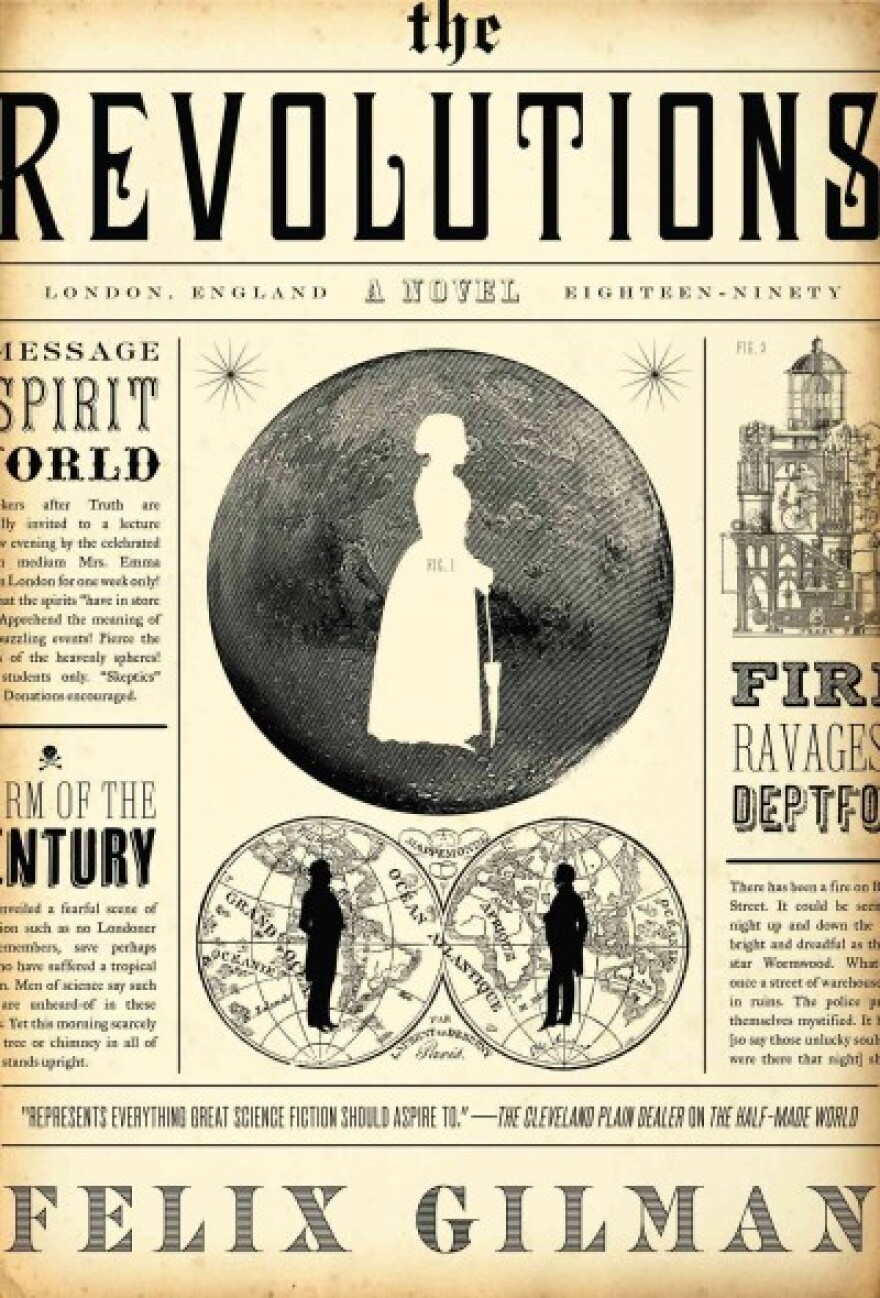
by Felix Gilman
"This is really a 21st-century example of Victorian science fiction, but with a little bit of steam punk ... mixing the present into the past. It's set in 1893, and the main character, Arthur Shaw, is caught between two warring magicians. So Arthur and his fiancée, Josephine, are separated when she takes part in a scientific experiment in the occult. And Josephine's consciousness becomes stranded among the celestial spheres. ...
"This book owes a lot to the Edgar Rice Burroughs' John Carter books. It was just fascinating to read. I'm a big fan of Felix Gilman's books and I highly recommend his earlier books, which are science fiction/westerns. ...
"I've always believed that people learn from every book they read, whether it's fiction or nonfiction, whether it's a mystery or a high-octane thriller. ... I think reading about the past in the context of the present is just fascinating."
The Swimmer

by Joakim Zander
"The Swimmer is indeed a high-octane thriller. And I guess I would disagree a bit with the comparison [on the book's cover] to le Carré because Zander's The Swimmer is much faster-paced. And it doesn't have that kind of narrative density that John le Carré's books have. (Now I say that being one of the biggest fans of John Le Carré's who walks on the Earth.) ...
"There are two main characters and one is a retired spy who comes out of retirement because a young woman is in trouble and he's actually the only one who can help her. And what happened with the young woman named Klara, is that ... she's involved in government, and she sees something that really endangers her life. She sees a laptop screen that she shouldn't have seen, and the race is on. ...
"And it has to be a thriller rather than a le Carré-type spy novel because if you see something that you shouldn't, you go on the run. ... And the pages are going to turn much faster than they would in a Charles McCarry spy novel or John le Carré or Olen Steinhauer."
Etta and Otto and Russell and James
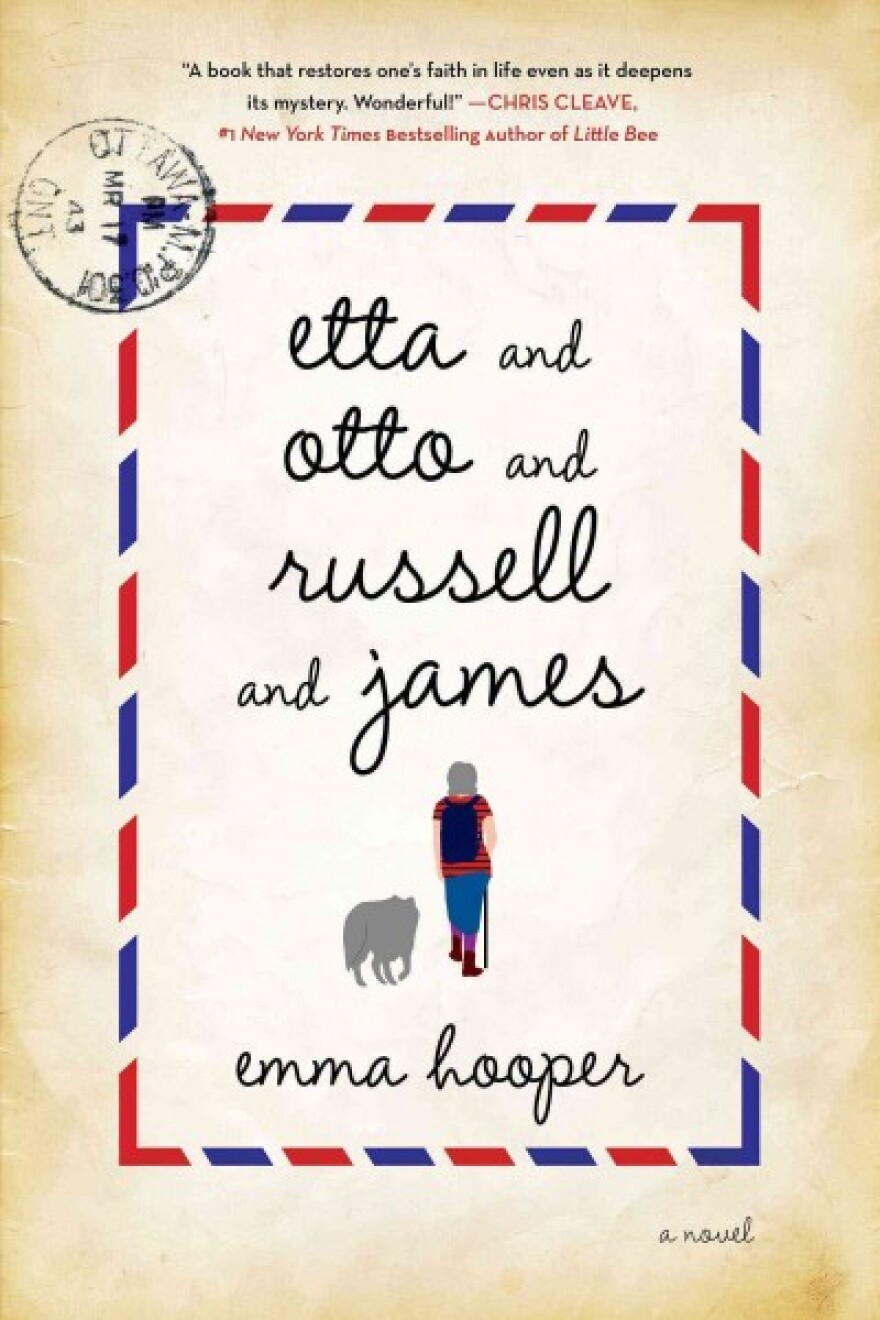
by Emma Hooper
"The pages do turn quickly in this book, but for a different reason. I think they turn not so much because you're following that breakneck speed of the plot, but because in Etta and Otto and Russell and James — a first novel by Emma Hooper — you're very interested in the characters. And you want to find out more about them. So as you turn the pages, you delve deeper into their hopes and where they are at the moment in their life. So it's a much different page-turner in a sense, but this is a lovely, lovely book.
"It's set partially around World War I and partially in the late 20th century. It's about a woman named Etta who comes to a small town in Saskatchewan. She's only a little bit older than the students that she's hired to teach. And she ends up marrying Otto, who goes off to fight in World War I and comes back a damaged man. Russell is someone who was Otto's best friend, almost his foster brother, and he has always loved Etta. Now they're in their 80s and Etta feels bereft because she has never seen the ocean. And she decides at age of 83 that she is going to walk to the ocean.
"Well, if you live in the Saskatchewan, you could go either west to the Pacific, or east to the Atlantic. ... Both involve mountains — or at least large hills. So she starts out traveling east; she decides to go to the Atlantic. And this is the story of her journey. Now you might've noticed ... that I have not said anything about James. And that's because I really want people to meet James as the author intended with no preconceived anything. ... I think she's commenting about soldiers coming home and what that means to them and what it means to those who love them."
Unbecoming
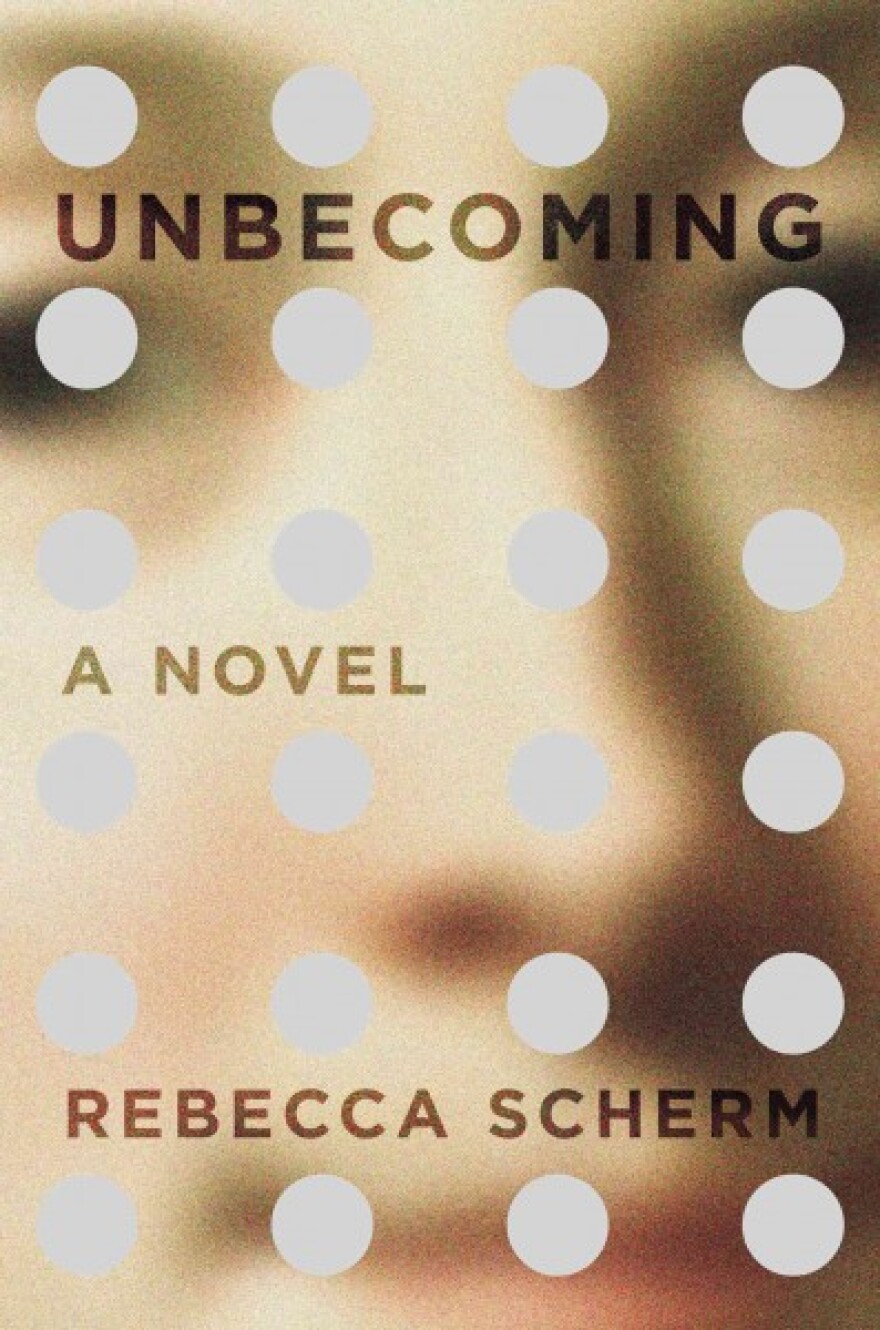
by Rebecca Scherm
"Unbecoming is a first novel by Rebecca Sherm. It opens with a lie. In a small, dusty French antique shop, Grace, the main character, introduces herself to her new boss by saying, 'My name is Julie.' And it goes from there back into Grace's past and how she ended up in that antique store doing restoration of jewelry and other pieces. It's a novel about lying to yourself, it's about lying to people you love, it's ... this incredible, psychologically acute story of a young woman who gradually 'unbecomes' who she says that she is almost at every point of her life. ... She's run away from a small town in Tennessee after a plan that ... involves stealing a picture from a local museum. ...
"All the things that Grace has done, the lies, the betrayal — they're all unbecoming behavior. ... The genius of the title, Unbecoming, is that it means much more than that. It's: How does one unbecome who one fundamentally is? So, you know, it kind of goes back to nature versus nurture debate, and I think that nature wins in this book, but the nurture or the lack of nurture in some cases in Grace's life speeds that dissolusion into unbecomingness along.
"Towards the end of the book, it catches up to itself so that we've arrived with Grace at that Paris shop, and we're moving forward to see what happens then. Some of the publicity for this book, I think, gives it a little bit of a misleading spin. There are some people who are talking about this as a thriller. But it's not. It's not what thriller readers would consider a thriller. It's a thrilling book to read because it is so wonderfully written. And when I finished it, I just couldn't stop thinking about Grace, and I could picture her town in Tennessee and the people that she knew and her parents and the man she marries. But, it was thrilling that way because they've become part of my life."
The Half Brother
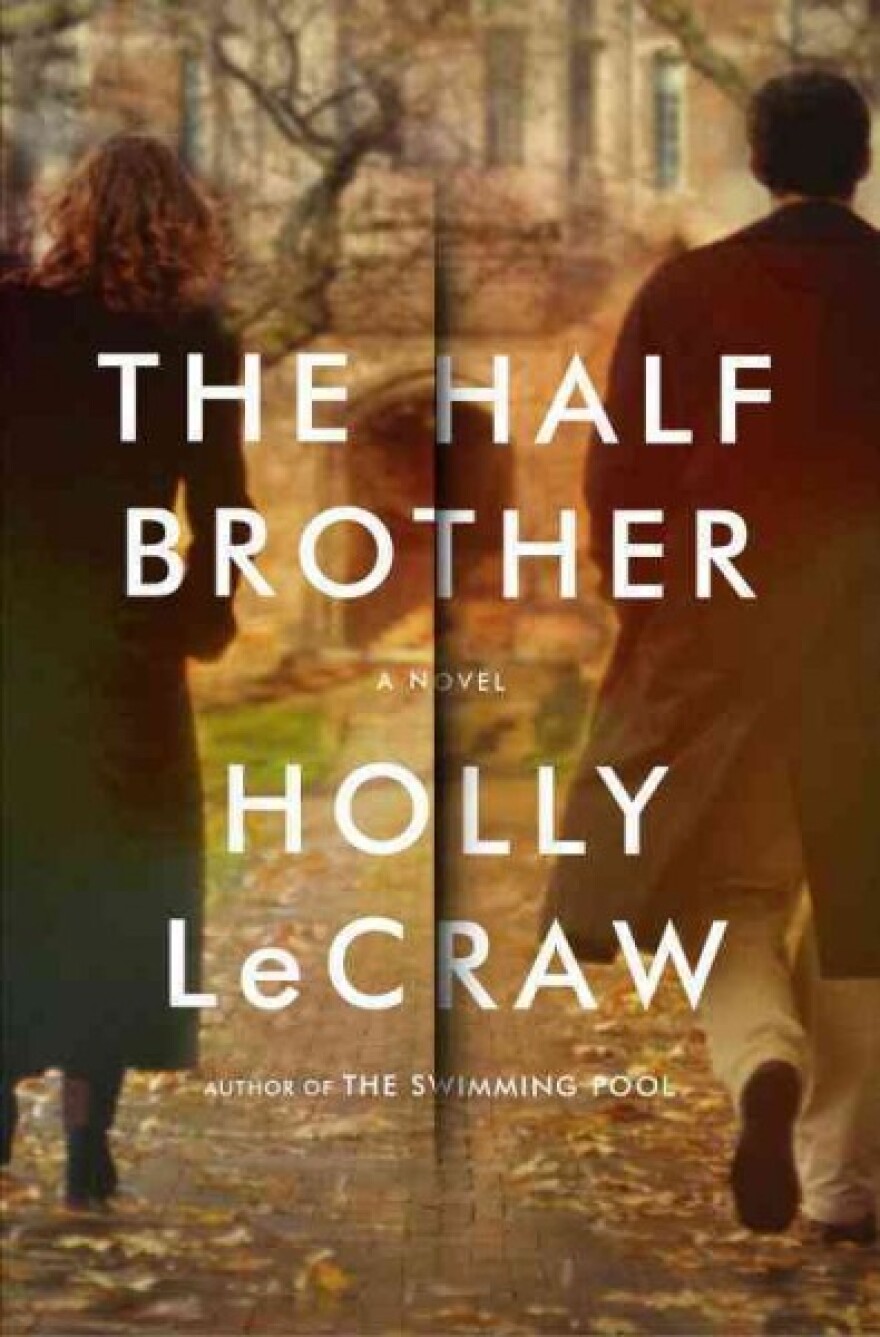
by Holly Lecraw
"The main character of this book is a youngish man named Charlie Garrett. He ... grew up in the South, goes to work at a private school teaching English in Massachusetts. ... And he falls in love with the daughter of the school chaplain. And by doing so, he walks straight into coincidence, that is: It's a book that talks about how much coincidence is possible in our lives. ...
"When I read it, I was taken aback by the amount of coincidence that determines Charlie Garrett's life and what happens to him. It reminded me ... of Oedipus Rex. ... It's the same: 'How do you avoid ... ?' Is it fate, as in the case of Oedipus Rex? Or is it coincidence? Is it just happenstance who you meet, what you trip over on the street that changes the way your life is going along? It's a book that makes you ... so uncomfortable because I just started listing all the coincidences that have made me who I am. ... And what if one of them had been different? What would the future for me have been?
"What kept me reading, I have to say, is the writing. It is just beautifully, beautifully written. There are just sentences and paragraphs that you just want to cherish."
The Strangler Vine
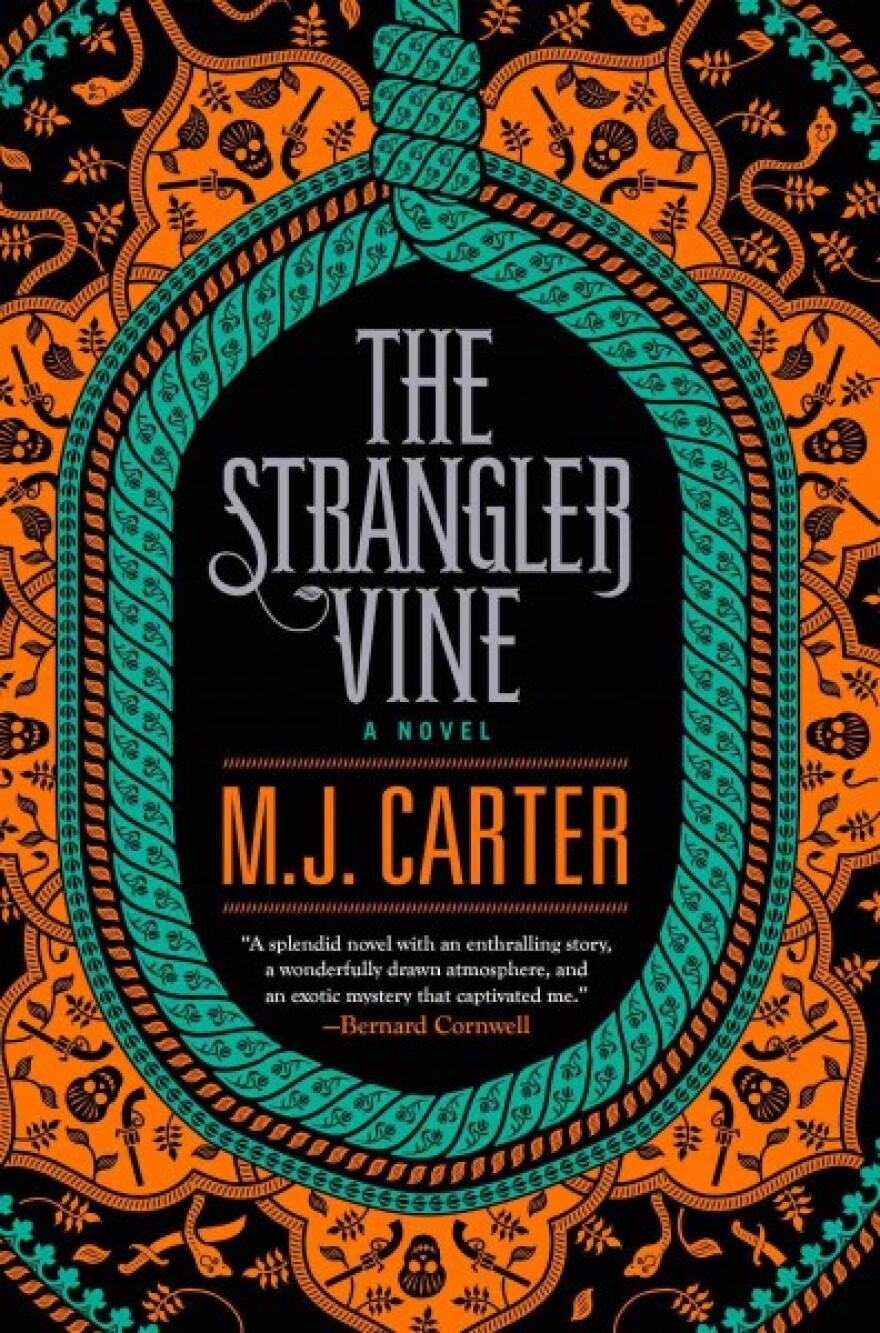
by M. J. Carter
"It's set in 1837. A member of the East India Company, William Avery, is in India buying into everything wonderful that the East India Company is doing. ... William is asked — or ordered — to track down a missing writer. And he is supposed to work with a kind of mysterious loner, a guy named Jeremiah Blake who used to be a political agent. ... So here we have [Avery], this very upstanding young Brit, and then we have this guy who is saying, 'A pox on both your houses!' And they have to work together to find this writer. And their journey to find this writer takes them all over India. ...
"Now, M.J. Carter in her non-novelist life is a historian, a wonderful historian. ... So she knows what she's talking about, she's a wonderful, wonderful researcher. And everything about India here rests very lightly on the shoulders of the plot, which is so much fun. It's the first of a projected series. I personally cannot wait for the second one."


